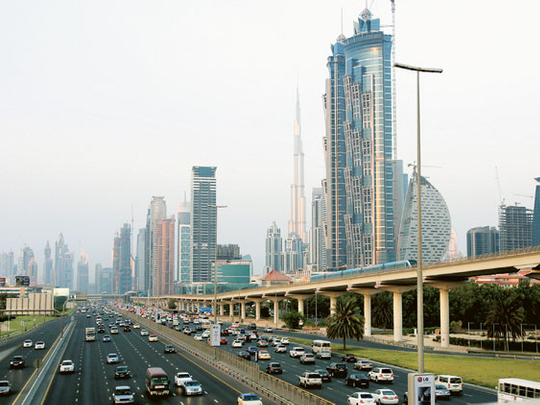
Dubai: The quality of life in Dubai is again rated the best in the Middle East and Africa region, according to the latest report by a recruitment consultancy firm.
For the third consecutive year, Dubai has maintained its regional top spot in Mercer’s 2015 Quality of Living survey, which ranks different cities in the world according to political and social environment, medical care and health considerations, public services, recreational facilities and natural environment, among others.
Dubai landed the 74th spot in the global rankings. Overall, Vienna topped the list, followed mostly by European cities: Zurich, Auckland, Munich, Vancouver, Dusseldorf, Frankfurt, Geneva, Copenhagen and Sydney in the top 10 list.
In the Middle East region, Abu Dhabi came second, with Muscat and Doha following behind in the third and fourth place, respectively. Abu Dhabi has moved up one place in the global ranking, from 78th in 2012 to 77th this year, although Dubai’s position has dropped one place from 2012.
Ideal destination
Nuno Gomes, information solutions Middle East leader at Mercer, said that the top city is the one with the best quality of life in the world and is considered the ideal destination for any residents or expatriates to live in.
In another report by the Alumni Association of graduate business school Insead released November last year, Dubai was ranked the most attractive place to live in terms of professional and private life.
The factors that have helped Dubai maintain the top spot in the Middle East region include the city's stable economic and political environment.
"In addition, Dubai has invested in its infrastructure over the years - transportation, schools, hospitals, etc.- which has contributed significantly to raise its ranking globally," Gomes told Gulf News.
"Other elements where Dubai scored highly are in public services and availability of consumer goods," he added.
Mercer came up with the report, which was first published in 1998, in order to help multinational companies decide on a fair compensation when placing employees on international assignments.
Several factors, such as the internal stability, law enforcement effectiveness, crime levels and medical facilities of a city or country are important to consider when sending staff abroad.
“In order for multinational companies to ensure their expatriates are compensated appropriately and an adequate hardship allowance is included in compensation packages, they must be aware of current events and local circumstances,” Gomes said.
“Infrastructure has a significant effect on the quality of living that expatriates experience. While often taken for granted when functioning to a high standard, a city’s infrastructure can generate severe hardship when it is deficient. Companies need to provide adequate allowances to compensate their international workers for these and other hardships,” he added.
Mercer Quality of Living Survey- 2015 Middle East Ranking:
DUBAI, UNITED ARAB EMIRATES
ABU DHABI, UNITED ARAB EMIRATES
MUSCAT, OMAN
DOHA, QATAR
AMMAN, JORDAN
KUWAIT CITY, KUWAIT
RIYADH, SAUDI ARABIA
JEDDAH, SAUDI ARABIA
CAIRO, EGYPT
BEIRUT, LEBANON
2015 Worldwide Ranking/ Top 10 List:
VIENNA, AUSTRIA
ZURICH, SWITZERLAND
AUCKLAND, NEW ZEALAND
MUNICH, GERMANY
VANCOUVER, CANADA
DUSSELDORF, GERMANY
FRANKFURT, GERMANY
GENEVA, SWITZERLAND
COPENHAGEN, DENMARK
SYDNEY, AUSTRALIA








